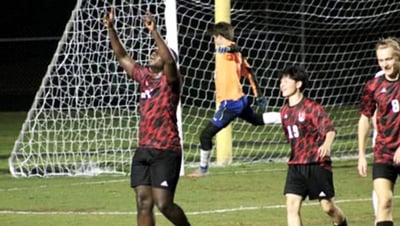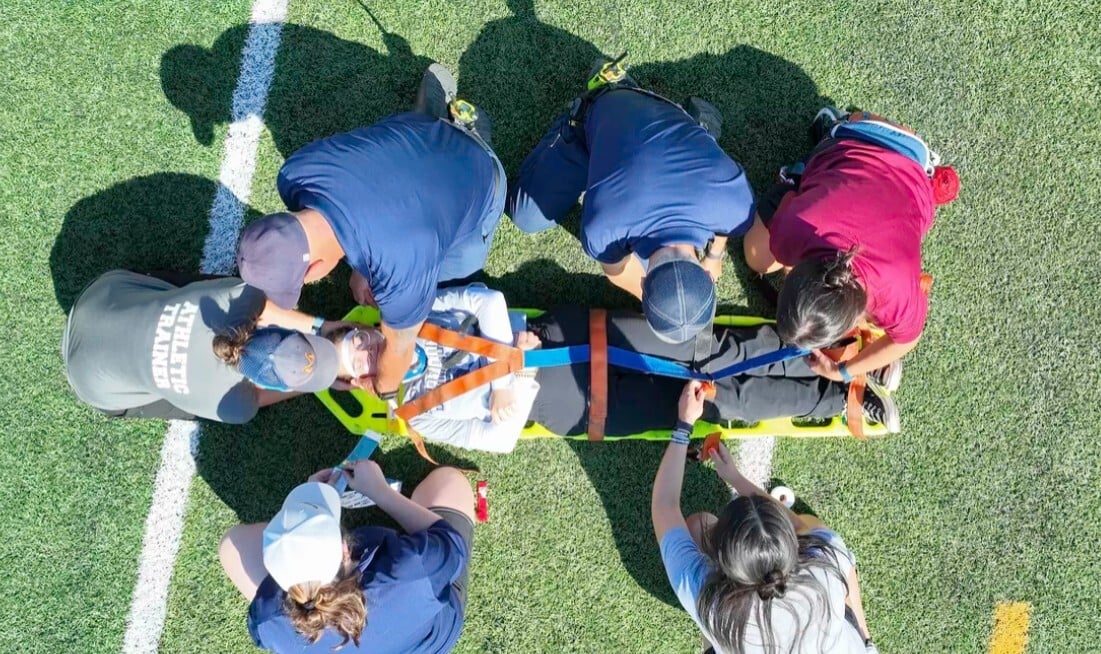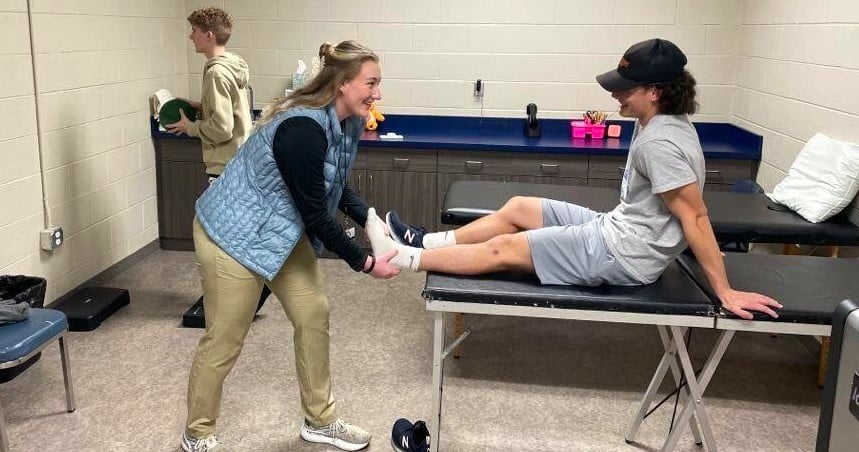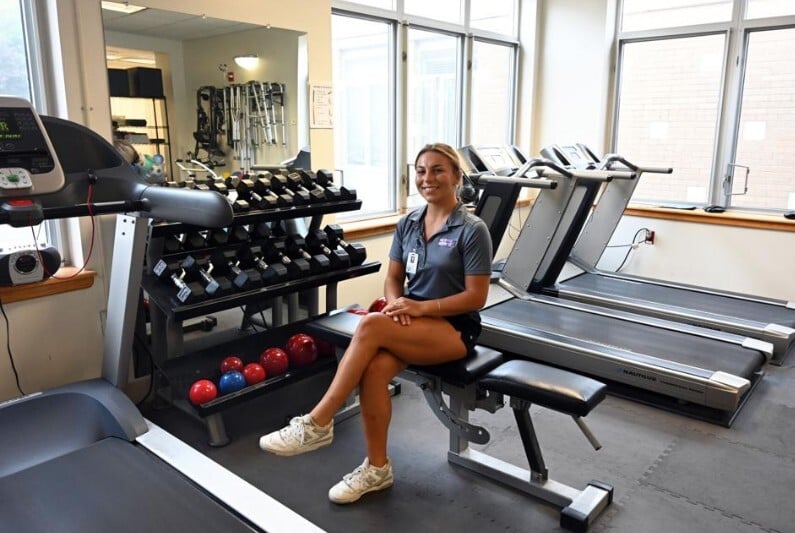Teen Soccer Player Saved by Quick-Thinking Athletic Trainer
 As a news source for Athletic Trainers, we are constantly looking out for stories on the importance of having ATs available for student athletes.
As a news source for Athletic Trainers, we are constantly looking out for stories on the importance of having ATs available for student athletes.
We've highlighted Stephanie Kuzydym's amazing Safer Sidelines coverage and pointed out dozens of news stories from across the country.
And we'll continue to do so because we know Athletic Trainers and life-saving AEDs are vital to protecting the children and young adults playing sports.
 Recently, in South Carolina, a teenager named Omar Clunis was celebrating after a soccer game when he suddenly collapsed.
Recently, in South Carolina, a teenager named Omar Clunis was celebrating after a soccer game when he suddenly collapsed.
Ashley Chrestman, an Athletic Trainer from the MUSC Health Sports Medicine team at Stratford High School, was alerted via two-way radio by the concerned coach.
Upon reaching Omar, she observed him gasping for air (which many suspected to be due to his known asthma condition.) However, Chrestman quickly realized the situation was heart-related.
Although Clunis initially had a pulse, she lost it shortly after. Chrestman performed CPR and used an automated external defibrillator (AED) on him. Berkeley County emergency medical technicians arrived later to assist.
The incident was caused by sudden cardiac arrest, a condition responsible for over 356,000 out-of-hospital occurrences annually in America, with approximately 90% resulting in death.
Omar's cardiac arrest was due to hypertrophic cardiomyopathy, a condition where the walls of the left ventricle become abnormally thick, hindering blood flow. And this condition has been estimated to be a leading cause of sudden death in athletes.
Dr. Alec DeCastro, of MUSC Health, stressed the importance of having ATs on location during events and practices.
"I think it’s critical to have highly trained sports medicine professionals, such as Athletic Trainers, not only because they are trained in CPR but also they are trained to be aware of this condition, and act quickly. The minutes that the athlete gets treatment before the ambulance arrives or the athlete gets to the hospital could mean the difference between life or death.”
Omar, now back in school and being cautious with physical activities, expressed his changed perspective on the fragility of life. His family is deeply thankful for the immediate medical attention he received from Chrestman.
Mike Barr, manager of the sports medicine program at MUSC Health, emphasized the significance of having Athletic Trainers in schools and sports teams to manage not just emergencies but also routine injuries.
"[Athletic Trainers can manage] extreme situations such as sudden cardiac arrest, but also more routine ailments. The most common injuries are related to the musculoskeletal system – from mild to severe sprains and strains. Some of these injuries need time and rehabilitation treatments, while others need surgical intervention. After musculoskeletal-related injuries, the next would be concussions followed by heat-related issues.”
Omar now has a defibrillator to monitor his heart. He recently met Chrestman again, expressing his gratitude for her timely intervention. Omar credits the presence of trained medical personnel at his school games for saving his life.
And Chrestman was very happy to see him again:
“Oh, it was the best thing! Because for a while, you just don't know. So it was awesome. It was one of the best feelings to see him back. And he actually came out to a game about two weeks later, and we hugged and exchanged some words about – he's so glad that I was there, and I'm so glad that he's here.”
Read the full article!
![HR Logo [Recovered]_Full Color Vertical-1](https://blog.healthyroster.com/hs-fs/hubfs/HR%20Logo%20%5BRecovered%5D_Full%20Color%20Vertical-1.png?width=199&height=178&name=HR%20Logo%20%5BRecovered%5D_Full%20Color%20Vertical-1.png)
 By
By


